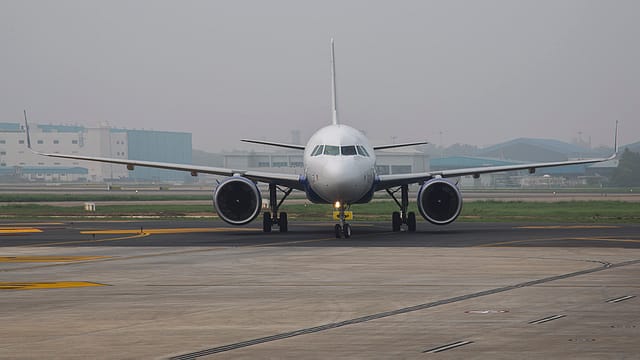Lessors, airlines to benefit as Parliament passes Protection of Interest in Aircraft Objects Bill
ADVERTISEMENT

Aircraft lessors can now heave a sigh of relief while leasing planes to Indian carriers after the Indian Parliament passed the Protection of Interest in Aircraft Objects Bill, 2025.
Aircraft lessors had earlier found their planes stuck in India when Wadia Group-owned budget carrier GoFirst filed for bankruptcy with the National Company Law Tribunal (NCLT) on May 2, 2023.
The bill, introduced by Minister of Civil Aviation Ram Mohan Naidu, aims to align India’s aircraft leasing and financing ecosystem with global standards and marks a critical step in deepening investor confidence in India’s rapidly growing aviation market.
The bill builds on the framework of the Cape Town Convention of 2001, which aimed to simplify and standardise international leasing agreements. India formally adopted this convention in 2008, but gaps in legal enforcement led to higher leasing costs—typically 8 to 10% higher than other nations. With this bill, India seeks to plug those gaps, providing legal certainty to aircraft financiers and reducing costs for Indian carriers.
The bill is expected to further ease leasing processes, make India a more attractive destination for aviation investments, and improve the country’s compliance scores under the Cape Town Convention. These changes are essential for reducing airline costs and encouraging new entrants into the sector, said Naidu.
“For almost 65 years—from Independence to 2014—the total number of passengers flying annually in India was 10 crore 38 lakh. In just the next 10 years, that number has more than doubled to 22 crore 81 lakh in 2024,” he said. “Similarly, the number of airports in India increased from 74 in 2014 to 159 in 2024, with two more ready to be launched soon,” said Naidu.
The minister also highlighted the increase in the number of aircraft, growing from 340 in 2014 to over 840 by 2024. “These figures show that civil aviation in India is not just growing—it’s booming. No other country has seen this level of aviation expansion in such a short period,” he stated.
On the high cost of Aviation Turbine Fuel (ATF) which accounts for nearly 45% of an airline’s operational costs, the minister expressed concern over the variation in ATF tax across states and called for more states to follow the example of those who have reduced their rates. “Reducing these taxes will boost regional connectivity and lower costs for passengers,” he added.
The sector also faces a growing demand for trained pilots—estimated at 30,000 to 34,000 over the next 10 to 15 years. “We are working on increasing the number of Flight Training Organizations (FTOs) and issuing more commercial pilot licenses annually to meet this demand,” the minister said.